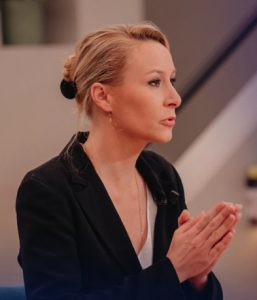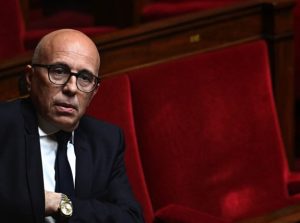We just witnessed the craziest 72 hours in a decade for the French Right. Only the elimination of Nicolas Sarkozy and Alain Juppé by François Fillon in the party contest for the 2017 presidential election could compete with what happened since Monday, June 10th.
After president Macron dissolved the National Assembly, both the Republicans and the Reconquest leaderships showcased their division upon the strategy to follow for the snap election. Unfortunately, only two options lie ahead of them: either they stand in the future parliamentary election on their own, either they enter a wider Right Union platform, led by Marine Le Pen's National Rally. Being part of the platform will bring them a consistent presence in the future Assembly, while standing alone will make them irrelevant, because the scrutiny is a two-round first-past-the post and this type of scrutiny goes strongly against small parties' candidates. However, entering the French Assembly as satellites of Marine Le Pen is not ideal for any of these two parties.

Against this background, Marion Maréchal moved first and tried to strike an agreement between her party (Reconquest) and the National Rally. It is unclear who mandated her to do that but, after a relative openness from Jordan Bardella and her aunt, Marine Le Pen, the National Rally informed her that it doesn't want any "direct or indirect" association with the Reconquest leader, Eric Zemmour. Nevertheless, Zemmour strongly defended his position to present Reconquest candidates in all French constituencies. Marion Maréchal and her team publicly criticised her party leader's position, considering it a huge mistake that will pave the way for either a Macron or a Leftist victory in the snap election. On Tuesday, Zemmour decided to exclude Marion Maréchal of Reconquest on "betrayal" grounds. Marion announced that she will support the Right Union candidates, but she will not join the National Rally.

At the Republicans, it was the president himself, Eric Ciotti, the one who decided to enter into an agreement with the National Rally. This means that the National Rally will not propose any candidate in some 80 constituencies, leaving the Republicans as sole candidates on behalf of the right. The Republican Party Committee unanimously excluded president Ciotti, who sued the putschists in Tribunal. Ciotti allegedly tried to prevent the meeting that led to his exclusion by closing the party offices and sending employees at home for Wednesday afternoon. However, a "traitor" offered a key duplicate to the Republicans Secretary General, Annie Gennevard. Gennevard, together with the no. 1 on the Republican list for the European election, François-Xavier Bellamy, and the Treasurer of the party, Daniel Fasquelle, took over as an interim leadership. However, all this takes a rather comic turn on Thursday, 13th of June, when Ciotti returns to his presidential party office to work "for France". Questioned about who would he support in a second round, in those constituencies where Republican candidates will be eliminated in the first round, Bellamy said he would "obviously" support the National Rally. Therefore, Republican putschists clearly consider any pre-electoral agreement with the National Rally as unacceptable, but they could support Marine Le Pen's candidates in a second round. This looks rather as an ideological position, originating from the historical rivalry between the movements that led to the actual National Rally and Republican parties, and not a position that is based on today's realities.
If the Republicans and Reconquest decide to stand on their own in the snap election, our take is that it will be very difficult for any of them to form their own parliamentary group of 15 MPs in the future Assembly. Their MPs will anyway vote similarly to the biggest right group in the future Assembly, the National Rally group. Moreover, if the 80 Republican candidates that will be supported by the National Rally will be excluded from the party, the Republicans will go through a painful division that might throw them definitively outside of the political game for the first time since 1958.